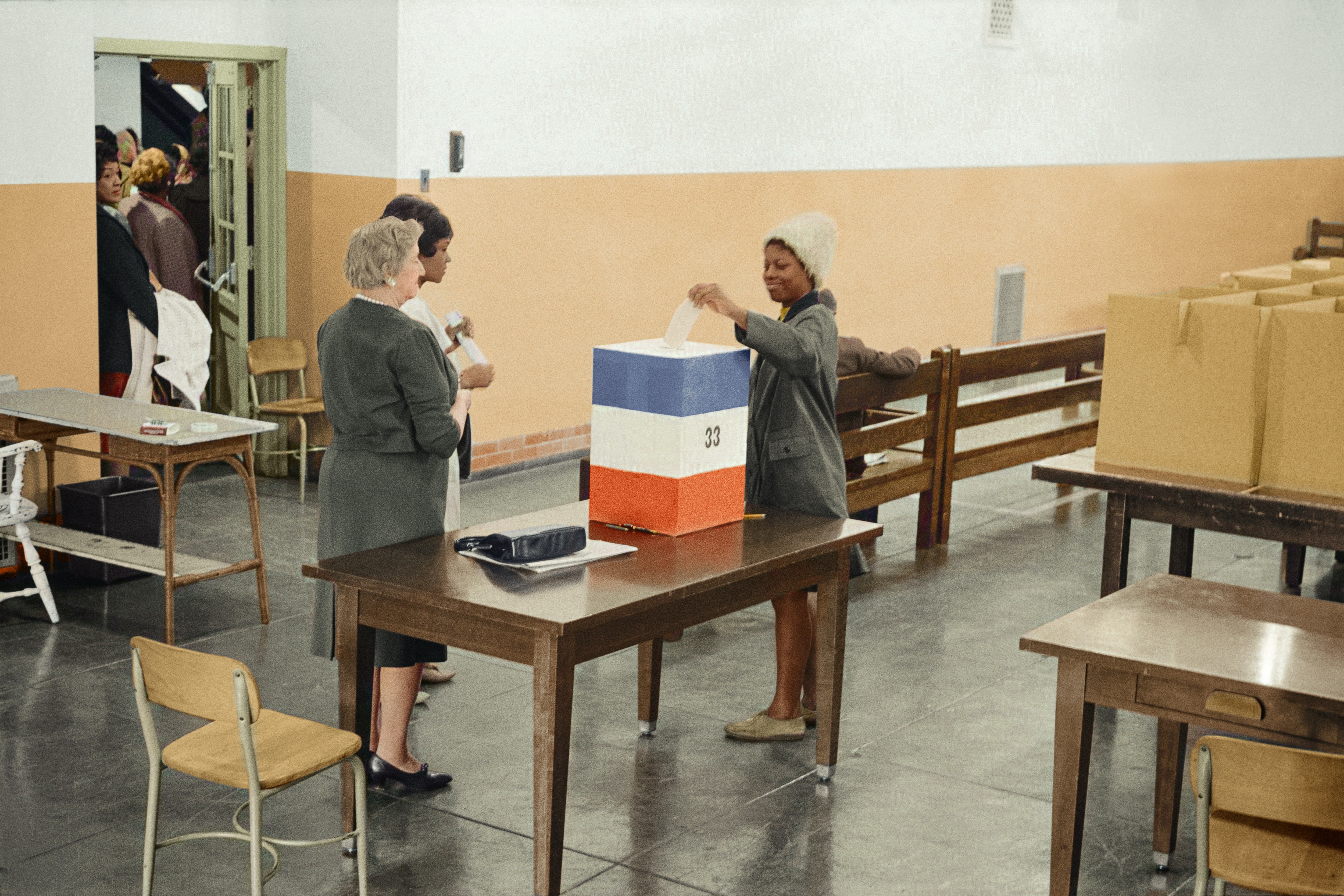 Photo courtesy of Seven Shooter
Photo courtesy of Seven Shooter
In anticipation of an important year for American electoral politics and amidst ongoing, worldwide clashes over the nature and limit of rights, HumanitiesX (HX) invites proposals for our 2023–24 fellowship on the theme of
Democracy and Rights.
HX fellowships are awarded annually to three teams, each comprised of two faculty members from DePaul's College of Liberal Arts and Social Sciences and a staff member from a Chicago-area nonprofit organization. Partner organizations typically bring expertise on the annual theme and/or in public engagement methods. HX teams work over the course of the fall and winter quarters (September through March) to develop a new course on the annual theme, to be co-taught in the spring of 2024.
HX courses must take an interdisciplinary approach to the annual theme and feature a project designed with and for the benefit of the community partner's organization and constituents; the courses must also foreground humanities modes of inquiry and humanities methods, as described below.
Approaches to the Theme
 Photo courtesy of Unseen Histories
Photo courtesy of Unseen HistoriesTeams are expected to apply with a core idea for their course and collaboration, rather than a fully formed syllabus and course project idea. We invite teams to approach democracy and rights from their unique disciplinary and organizational perspectives, thinking either within or beyond the present moment and the American context.
Some of the questions that might organize an HX course on the theme of Democracy and Rights include these:
- What do specific historical texts teach us about how to define or defend democracy and rights? How can we share these texts to inspire contemporary audiences?
- What conversations about democracy and rights can we start by engaging with the arts or literature?
- What can we learn from Chicago citizens and organizations that have pioneered fights for rights?
- How do specific religious and philosophical traditions help us to define rights and guide individual or collective action?
- How can we design community conversations that enable people to talk across their differences and productively enact democratic values?
- What can we learn about the stakes for democracy in the 2024 election by studying past cultures and past moments?
- How can movements for rights be preserved and communicated to public audiences and future generations?
- How can we document and understand past injustices to prevent future injustices?
- How do official and unofficial monuments and public art in the city of Chicago frame rights or democratic action?
Interested teams should reach out to the HX Faculty Director, Lisa Dush (ldush@depaul.edu) well in advance of applying, as successful proposals for participation in the fellowship typically emerge through conversations with the HX team about the proposed idea.
What is HumanitiesX and How are HumanitiesX Fellows Supported?
HumanitiesX is DePaul's Experiential Humanities Collaborative. Funded by a multi-year grant from the Mellon Foundation, we offer fellowships for faculty, community, and student fellows that encourage their innovation and collaboration in the experiential humanities. You can learn more about our model on
our website, especially by watching our
explainer video.
HumanitiesX Faculty Fellows receive three course releases and a summer stipend; Community Fellows' organizations receive a $17,600 unrestricted pass-through grant. Each HX team also has the assistance of two Student Fellows. These incentives are offered to give the fellows time and space to collaborate over the full academic year and to innovate in ways that are not ordinarily possible.
What Are Humanities Methods, Practices, and Projects?
As members of DePaul's Experiential Humanities Collaborative, teams are asked to draw on humanities methods in both their exploration of the theme and their project-based work. Humanities methods include but are not limited to historical inquiry, application of critical or theoretical frameworks, archival engagement, interviews/oral history, exhibition-making, facilitating public dialogue, or creating public-facing writing or digital media. Past HumanitiesX courses in our
Immigration and Migration cohort, and those in our current cohort on
The Environment: Crisis and Action, have directed students' efforts to a range of project deliverables for their nonprofit partners, including oral history collections, videos, websites, public exhibitions, public discussion events, and print collateral.
 Photo courtesy of Miko Guziuk
Photo courtesy of Miko Guziuk
How Do We Apply?
Please visit our
Fellowship Application page for details about the application process and be sure to download the
Application Guidelines packet. Applications must be submitted online by
March 6, 2023.